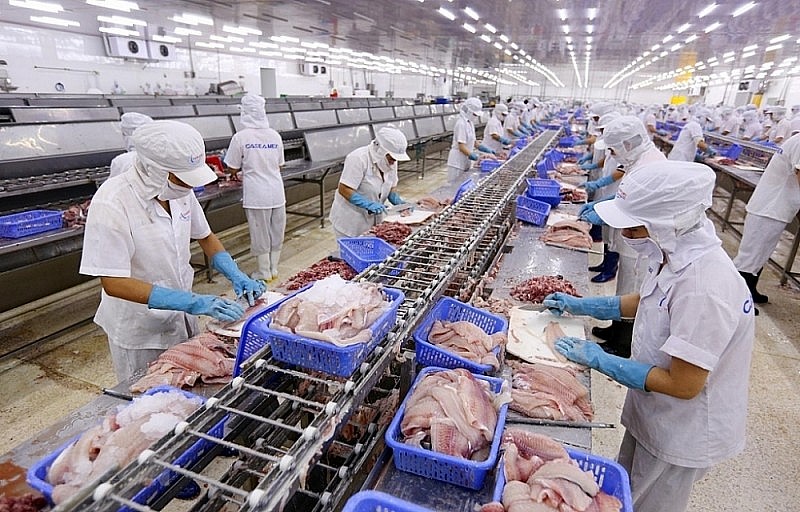 News
News
| It is forecasted that in 2023, seafood exports will earn over 9 billion USDExport of key seafood products has increased in 39 markets?Which group of goods has the potential to be exported to the UAE market in 2023? |
According to the Association of Seafood Exporters and Producers , in the first half of 2023, Vietnam's seafood exports to the UAE decreased by over 50%, reaching more than 17 million USD. In which, exports of pangasius and black tiger shrimp all decreased by over 50%, whiteleg shrimp decreased by 73%...
 |
| Particularly for frozen fish fillets with HS0304 code, Vietnam ranks first thanks to export pangasius products, accounting for 40-50% of the market share in the UAE. |
Each year, Vietnam exports about 22-24 thousand tons of seafood to the UAE, with a value ranging from 50-70 million USD, showing that there is still a lot of room in this potential market. Particularly for frozen fish fillets with HS0304 code, Vietnam ranks first thanks to exported pangasius products, accounting for 40-50% of the market share in the UAE.
However, with shrimp, Vietnam ranked 5th, having to compete with India and Ecuador. India accounts for nearly 60%-70% market share, Ecuador has only entered the market in recent years with 15% market share, while Vietnam accounts for only 5%-7%.
The UAE imports about 250,000 tons of seafood per year, worth $750-800 million. The top 4 supplying countries include India, Thailand, Norway and Vietnam. India has a dominant market share of 20-24% with the main product being frozen shrimp, while Vietnam ranges from 6-9% with the main product being frozen pangasius fillets.
The UAE is a net importer of seafood and the country imports up to 90% of its food consumption. Growing population, high income, rapid urbanization, increasing disposable income and young people's preference for seafood protein along with tourism are expected to boost seafood consumption. .
Furthermore, a study found that online searches for seafood products have skyrocketed in recent years, making seafood one of the fastest-growing proteins searched for in the world. GCC (Gulf Cooperation Council countries).
The UAE's economic outlook remains positive, with GDP forecast to grow 3.6% in 2023. Despite the geopolitical ramifications the global economy is currently facing, the UAE economy is already in poised for stronger growth, recovery and prosperity in the second half of this year.
Its successful economic performance has led to the UAE being named as the world's great economy - an innovation-driven economy. These signals will be a hope for exporters who are having difficulty in major markets such as the EU, the US, and China.
The UAE's progress in implementing comprehensive economic partnership agreements will help improve trade and integration into global value chains, which are important drivers of economic growth.
Currently, the UAE has signed Free Trade Agreements (FTAs) with many countries, including India, Malaysia, Singapore, New Zealand... India seems to have taken advantage of the tariff advantage in this market to increase the price. market share in recent years.
Pangasius, tuna and other marine fish products imported into the UAE are the main products, being subject to a 5% tax rate. It is expected that this market will be more open to Vietnam's exported seafood products to this market if Vietnam can agree on the seafood import tax rate into the UAE to 0% after signing a bilateral FTA agreement. with the UAE.
However, besides the tariff problem, the most difficult thing for businesses exporting to the UAE is the requirements of importers related to Halal certification. If this problem is concerned by ministries and businesses to overcome, Vietnamese seafood will not only conquer the UAE market but also the potential Middle East region.